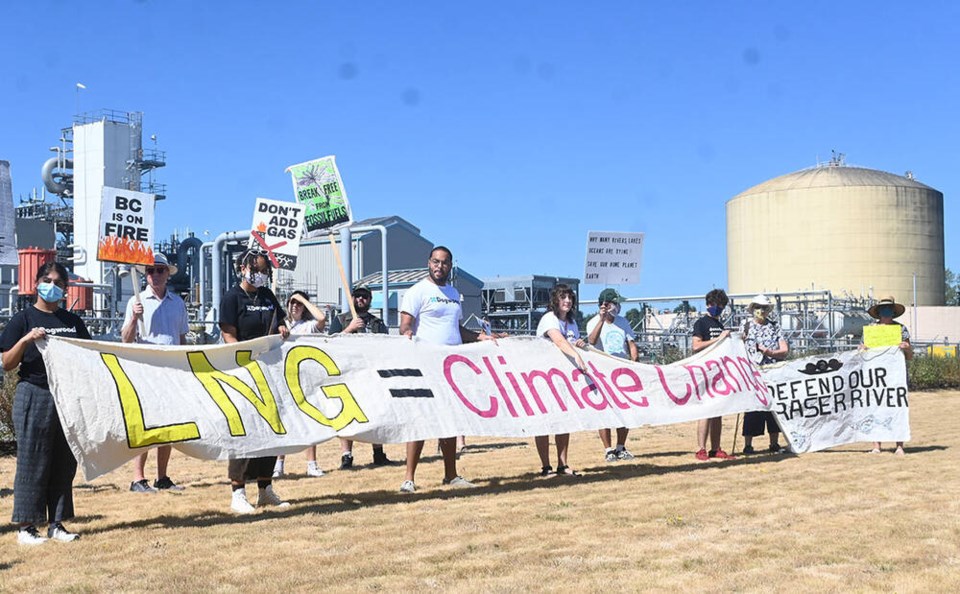Several environmental groups are giving the thumbs down to the provincial government, who on Wednesday announced the approval of a new LNG tanker and ship fueling industrial project, known as the Tilbury Marine Jetty.
“The news of the approval of the Tilbury LNG jetty is disappointing and unsurprising given the millions the fossil fuel industry lobbying machine has spent on convincing Canadians that LNG is a ‘clean’ energy, when the science tells us it is anything but,” said Kiki Wood, Senior Oil and Gas Campaigner for Stand.earth. “Tilbury’s tanker dock will hurt the delicate ecosystem of the Fraser River, and harm local communities with additional air pollution and unnecessary risks. When operational, it will undermine Canada’s commitment to phase out fossil fuels, and lock Canada into a toxic relationship with the very pollutants that are exacerbating wildfires and droughts that ravage our province. What we need to see happen now is to act without delay, because when it comes to the transition to renewable energy, later is too late.”
According to Stand.earth, the Tilbury LNG expansion could add as much pollution to B.C.’s air annually as the entire city of Vancouver, and would require drilling thousands of new fracking wells in order to supply it with fracked gas. The cities of Richmond, Vancouver, New Westminster, and Burnaby all passed motions opposing the Tilbury LNG expansion project, citing significant environmental, climate and livelihood concerns.
The City of Delta has remained neutral on the issue.
Stand.earth is calling on the provincial government to truly commit to an energy transition that moves away from fossil fuel projects and invests in real climate solutions.
“Clearly, the provincial government saw the opposition from local residents and communities during the hottest year on record and after the worst wildfire season in B.C. history and decided to side with the fossil fuel industry anyway,” added Wilderness Committee Climate Campaigner Peter McCartney. “When gas companies are lobbying them three times a day, I’m starting to question whether the government is even capable of saying no to them.”
McCartney said British Columbians are likely to pay the price for the provincial government’s decision to approve the project on their utility bills. In the U.S. and Australia, LNG exports have led to rising domestic prices for gas. Tilbury LNG would also receive electricity for below cost from BC Hydro so ratepayers would ultimately subsidize the project.
“Building Tilbury LNG will only worsen the cost of living crisis and the climate emergency for the benefit of a handful of fracking companies and FortisBC,” said McCartney. “Today, the BC NDP chose the fossil fuel industry over average ratepayers who are already feeling the squeeze of high utility bills and everyone who is now paying the costs of climate disasters.”



